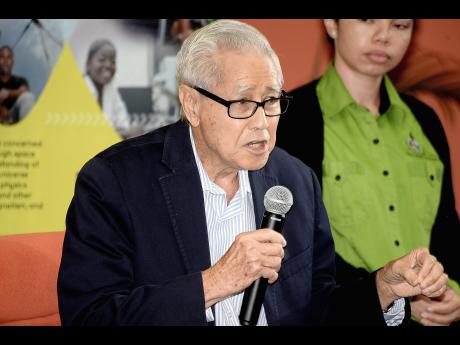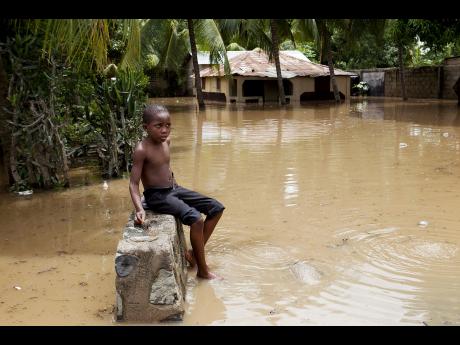Earth Today | Slow progress for approval of IPCC Special Report On 1.5°C temperature rise
PROGRESS TOWARDs the approval of the Summary for Policymakers (SPM) of the Special Report on Global Warming of 1.5 degrees Celsius has been extremely limited, at the meeting of the Intergovernmental Panel on Climate Change (IPCC) in Korea this week.
"Progress is extremely slow and we are very concerned," a source told The Gleaner from the meeting, which is set to conclude tomorrow.
The limited progress has reportedly been much to the frustration of Caribbean and other small island developing states (SIDS) that are keen on having it approved.
The report and its SPM were commissioned by governments following the 2015 global climate talks that yielded the historic Paris Agreement, which reflects the commitment to "holding the increase in the global average temperature to well below 2 degrees Celsius above pre-industrial levels and pursuing efforts to limit the temperature increase to 1.5 degrees Celsius above pre-industrial levels".
According to the agreement, this is "recognising that this would significantly reduce the risks and impacts of climate change".
CLIMATE IMPACTS
Those impacts include rising sea levels, the associated coastal inundation and implications for lives and livelihoods loss; extreme weather events, such as the hurricanes that devastated sections of the Caribbean last year; and continued global warming, which has implications for, among other things, vector-borne disease prevalence in Jamaica and the Caribbean.
It is against this background that in particular SIDS of the Caribbean, as elsewhere such as the Pacific, have long lobbied for a special report on climate change, one that clearly establishes what is at stake for them and the need for scaled-up support from the developing world, to build resilience.
Meanwhile, the IPCC shared the final draft of the report with governments back in June, with a request for comments on the SPM by July 29.
"The review of the final draft is a key stage in the preparation of the report, allowing authors to prepare for the line-by-line approval session of the SPM that will take place (from October 1-5). The report, to be released on October 8, subject to approval by the panel, will be the key scientific input into the Talanoa Dialogue at the UN Climate Change Conference to be held in Katowice, Poland, in December," the entity said in a June 4 release.
"The aim of this final review is to ensure that the Summary for Policymakers is accurate, well-balanced, presents the findings of the underlying report clearly, and is consistent with the scope of the full report as approved by the panel at the 44th session of the IPCC in October 2016," it added.
Up to yesterday, the precise details of the slow progress of deliberations at the plenary of the IPCC were not immediately clear.
SIDS chasing smoke?
Back in Jamaica, celebrated physicist Professor Anthony Chen affirmed the value of getting the approval while also providing a sobering perspective on 1.5 degrees Celsius as a target for a cap in global temperatures.
"I know that this has been a very strenuous task for the scientists who authored this report, especially for the coordinating authors. I hope that the representatives of the 195 member governments of the IPCC do not water down the report too much since it is important to know the full impact of climate change under a rise of 1.5 degrees Celsius," noted the professor and former head of the Climate Studies Group Mona.
"Practically speaking, limiting temperature rise to 1.5 degrees Celsius will be extremely difficult to achieve since fossil fuel emissions will have to peak before 2020 to achieve this in a gradual way. I do not see this happening and even limiting temperature rise to 2 degrees Celsius will be an enormous task," added Chen, who was a member of the IPCC, which, along with former United States Vice-President Al Gore Jr, was named winner of the Nobel Peace Prize for 2007.
"But we need the 1.5 degrees Celsius perspective to tell us how bad things will be so that we can hasten the process of reducing fossil fuel emission to at least achieve a limit of 2 degrees Celsius," Chen said further.


